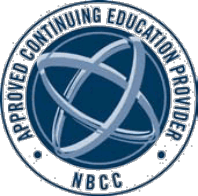Course Summary
Practice Level: Intermediate
This course is part of a 3-course series on Substance Use Disorder Treatment and Family Therapy.
Substance use disorders (SUDs) are complex and far reaching, affecting not only the individual with SUD, but also their family. This series provides information that clinicians can use to provide SUD treatments, services, and programs that best meet the needs of those seeking addiction treatment as well as those supporting recovery.
The courses in this SUD Treatment and Family Therapy series are:
Substance Use Disorder Treatment: Working with Families
Substance Use Disorder Treatment: Family Counseling Approaches
Substance Use Disorder Treatment: Family and Organizational Cultures
Families affect—and are affected by—substance use disorders (SUDs). As such, it is beneficial to include family members in clients’ treatments and/or services for SUDs. Appropriate family inclusion often increases the likelihood of achieving and maintaining long-term recovery. This learning material uses Chapter 1 (Substance Use Disorder Treatment: Working with Families) and Chapter 2 (Influence of Substance Misuse on Families) of the Substance Abuse and Mental Health Services Administration’s (SAMHSA) publication TIP 39 Substance Use Disorder Treatment and Family Therapy.
The purpose of this learning material is to prepare clinicians to adapt SUD treatments and services to each family’s individual makeup and needs, including background, structure, and situation. Chapter 1 discusses different types of families and gives an overview of different approaches of family-based SUD treatment. Chapter 2 delves deeper into family systems and the role of substance misuse on family dynamics. In this learning material, clinicians will learn how to identify common family structures and dynamics and determine how these may influence substance use.
Course Format
This course contains downloadable online lessons (PDF) and a practice test. When you’re ready, purchase the course by clicking the “Add To Cart” or “Enroll” button. This will let you take the test, complete the course evaluation and receive your certificate for CE credits.
Learning Objectives
Upon completion of this course, the learner will be able to:
1. Describe the importance of integrating family counseling into SUD treatment.
2. Identify common concepts of family structure related to SUDs.
3. Discuss current models and treatment approaches to family counseling for SUD treatment.
4. Recognize common family features and dynamics associated with substance misuse and SUDs.
5. Describe how a parent’s SUD affects children both in childhood and adulthood.
Course Syllabus
Substance Use Disorder Treatment: Working with Families
- Scope of this TIP
- Family Counseling: What Is It, and Why Is It Useful?
- Family Counseling Objectives
- Understanding Families
- Common Characteristics of All Families
- History of Family-Based Interventions in SUD Treatment
- Different Pathways in Working with Families
- Where Do We Go From Here?
Influence of Substance Misuse on Families
The Role of Genetics and Family History in the Development of and Recovery From SUDs
Common Characteristics of Families With SUDs
Family Types: SUDs and Family Dynamics
Where Do We Go From Here?
Authors
SAMHSA
The Substance Abuse and Mental Health Services Administration (SAMHSA) is an agency within the U.S. Department of Health and Human Services. SAMHSA leads public health efforts that advance the behavioral health of the nation. On samhsa.gov SAMHSA states that its mission is to reduce the impact of substance abuse and mental illness on communities in America.
William A. Cook, PhD
William A. Cook, Ph.D. is a licensed psychologist who worked for 15 years in private practice in Montana before leaving his practice to work full time as theDirector of CE4Less. He earned his doctorate degree from Texas A&M University, and focused much of his psychology practice in the area of child and family counseling, as well as psychological testing. Dr. Cook likes new challenges, foreign traveling to Africa and areas of Europe and the near East, scuba diving, running, music, and spending time with his family.
Accreditation Approval Statements
CE4Less.com is approved by the American Psychological Association to sponsor continuing education for psychologists. CE4Less.com maintains responsibility for this program and its content.
CE4Less.com, provider #1115, is approved as an ACE provider to offer social work continuing education by the Association of Social Work Boards (ASWB) Approved Continuing Education (ACE) program. Regulatory boards are the final authority on courses accepted for continuing education credit. ACE provider approval period: 08/08/21-08/08/24.
Social workers completing this course receive 3 clinical continuing education credits.

CE4Less.com has been approved by NBCC as an Approved Continuing Education Provider, ACEP No. 6991. Programs that do not qualify for NBCC credit are clearly identified. CE4Less.com is solely responsible for all aspects of the programs.
Courses have been approved by CE4Less.com, as a NAADAC Approved Education Provider, for educational credits. NAADAC Provider #91345 CE4Less.com is responsible for all aspects of the programming.
We are committed to providing our learners with unbiased information. CE4Less never accepts commercial support and our authors have no significant financial or other conflicts of interest pertaining to the material.


